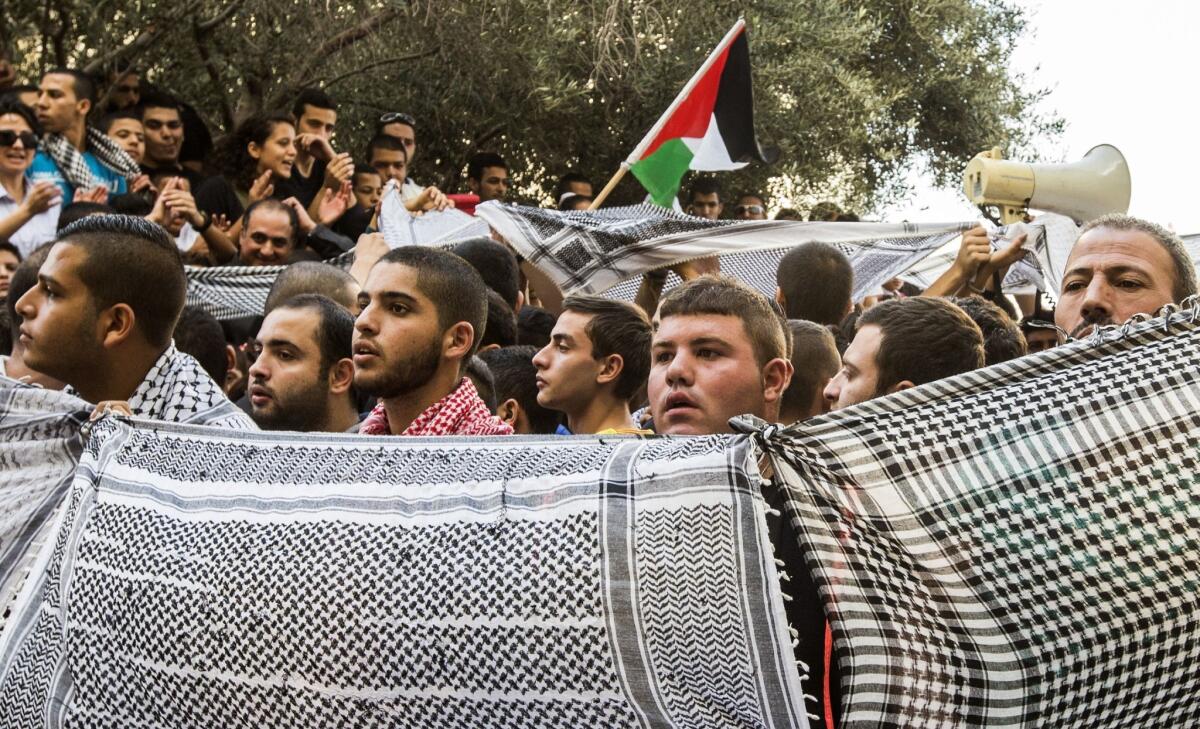Jail sentences for Arab Israelis in lynching of Jewish militant

JERUSALEM -- The Haifa district court sentenced seven Arab Israelis to jail terms of up to two years for taking part in the slaying of a Jewish militant just after he killed a group of bus riders.
As jail terms of eight to 24 months were issued Thursday, hundreds of Arab citizens demonstrated outside the Haifa courthouse, protesting perceived discrimination and calling the case a political trial. After the proceedings, which saw the court suspend one defendant’s eight-month sentence, demonstrators threw rocks and clashed with police.
Eden Natan-Zada was an AWOL soldier and Jewish extremist who killed four people and injured 11 in 2005 when he opened fire with his army-issued weapon inside a bus in the Arab town of Shfaram in northern Israel.
Natan-Zada was beaten to death by a crowd at the site after he had been disarmed and was in police custody.
Indicted in 2007, seven residents of Shfaram were charged in the case. In July, all seven were acquitted of the more serious charge of attempted murder. Four were convicted of attempted manslaughter, two of aggravated assault and all were found guilty of assaulting police officers and obstructing justice.
Observers noted that the sentences were lighter than the six to nine years in prison sought by prosecutors. But from indictment to sentencing, a case in which Arab Israeli citizens were prosecuted for killing a Jewish militant had been highly charged and politically sensitive.
“This is a political conviction,” lawmaker Mohammad Barakeh told the news media. “If the Israeli justice system does not serve the Arab minority, we will consider seeking international help.”
Judge Ilan Schiff, who headed the panel, wrote that no law-abiding society would tolerate revenge, even if the victim committed a heinous crime. “Revenge is for God, punishment is for the judiciary,” Schiff said.
ALSO:
Thai premier survives no-confidence vote, but protests continue
Afghanistan: U.S. ambassador says onus is on Karzai to sign pact
Colombia recalls envoy to Nicaragua amid dispute about Caribbean
Sobelman is a news assistant in The Times’ Jerusalem bureau.
More to Read
Start your day right
Sign up for Essential California for news, features and recommendations from the L.A. Times and beyond in your inbox six days a week.
You may occasionally receive promotional content from the Los Angeles Times.






